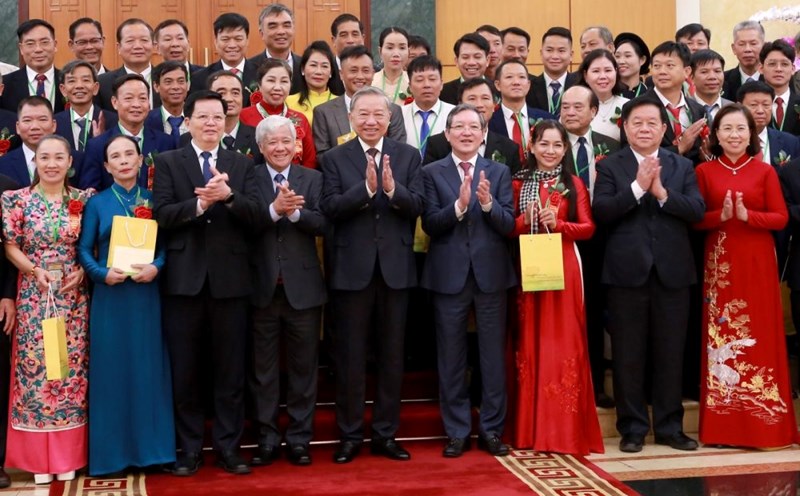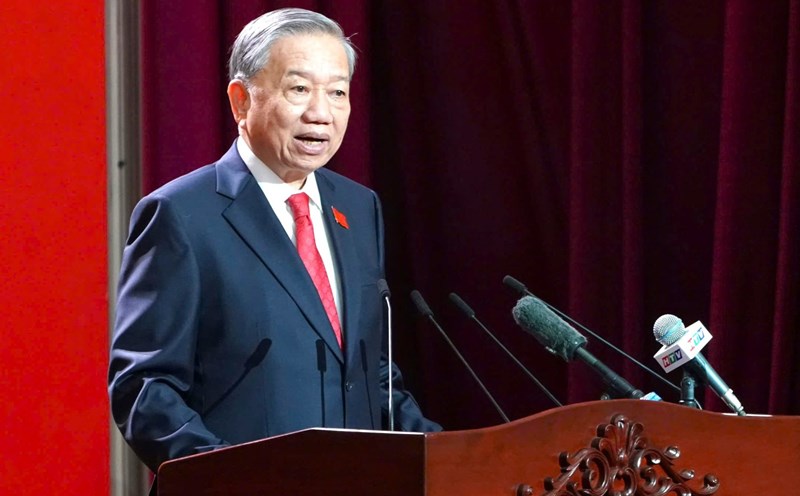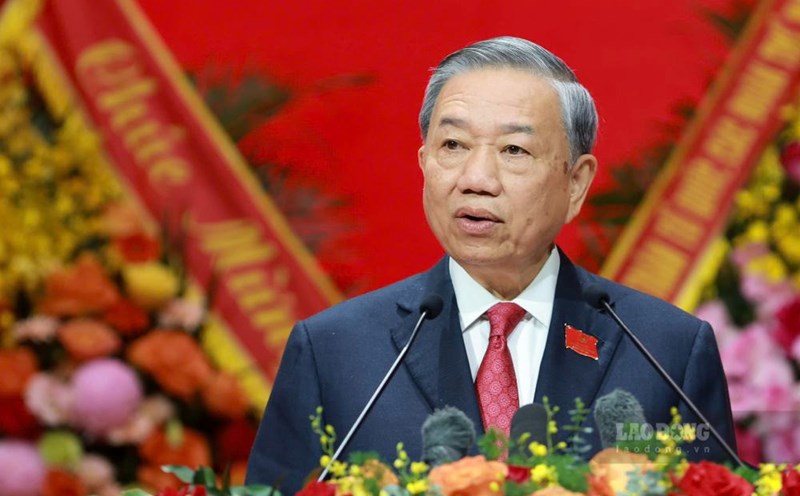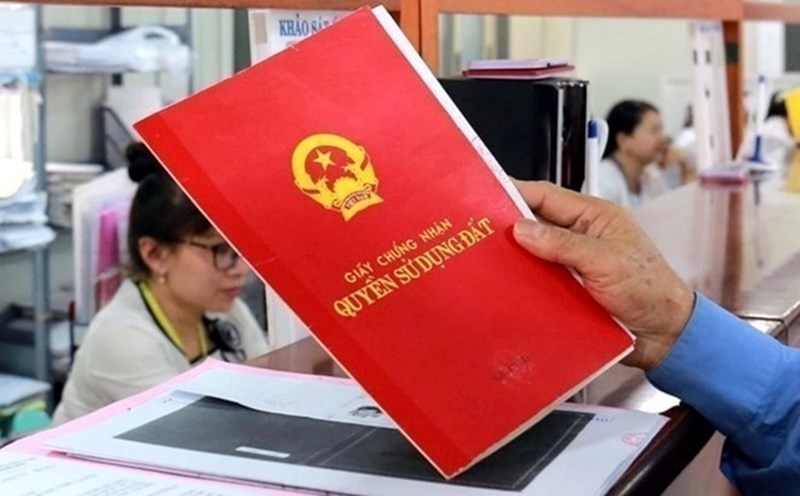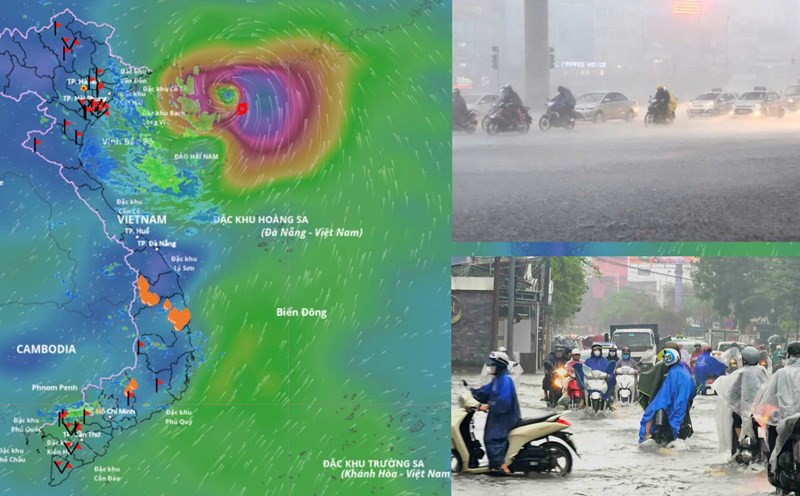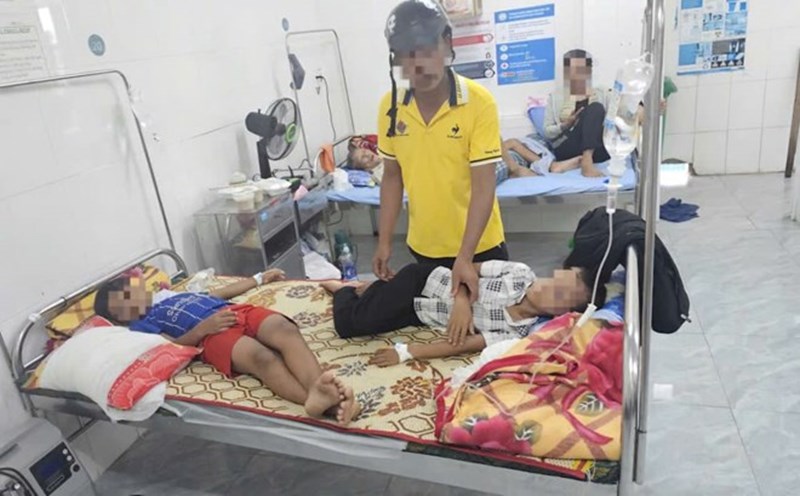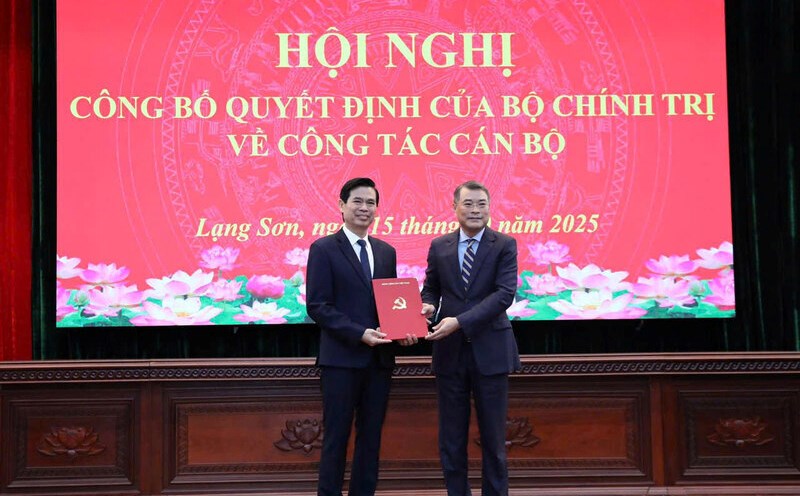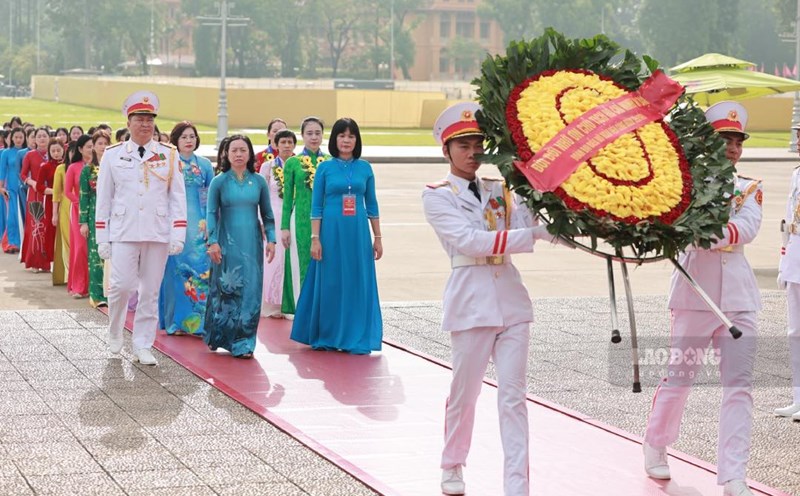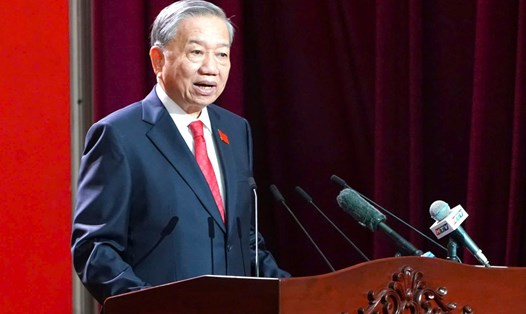Looking at the world, I see a lot of impatience, countries move very quickly
This morning (October 15), at the Party Central Committee Headquarters, a meeting of the Standing Committee of the Central Steering Committee on science, technology development, innovation and digital transformation was held under the chairmanship of General Secretary To Lam - Head of the Steering Committee.
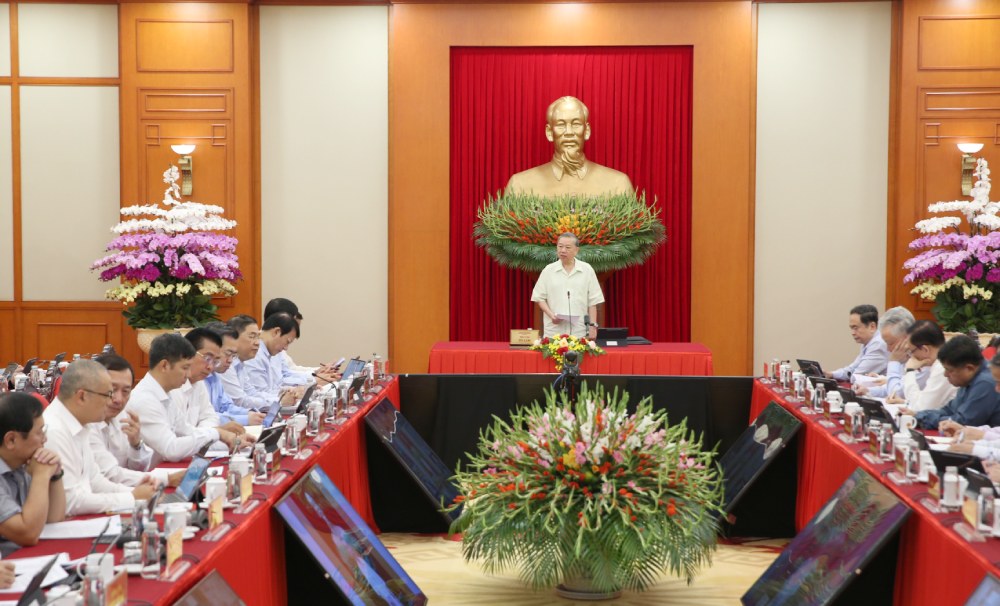
In his opening speech, General Secretary To Lam said that the recent 13th Central Conference had established a transformation of the country's development model. The focus is on socio-economic growth based on science and technology, innovation, and digital transformation.
According to the General Secretary, the world today, developed countries rely on this content, there is no other way. Not only land, finance, human resources, and labor, but to develop quickly, we must have science, focusing on digital transformation. This is a very strict requirement, it is necessary to unify common perceptions to take common actions.
"As long as you can do it, it will not be possible. We must be very serious and have a very definitive understanding of this. This is not something to wear makeup on" - the General Secretary stated.
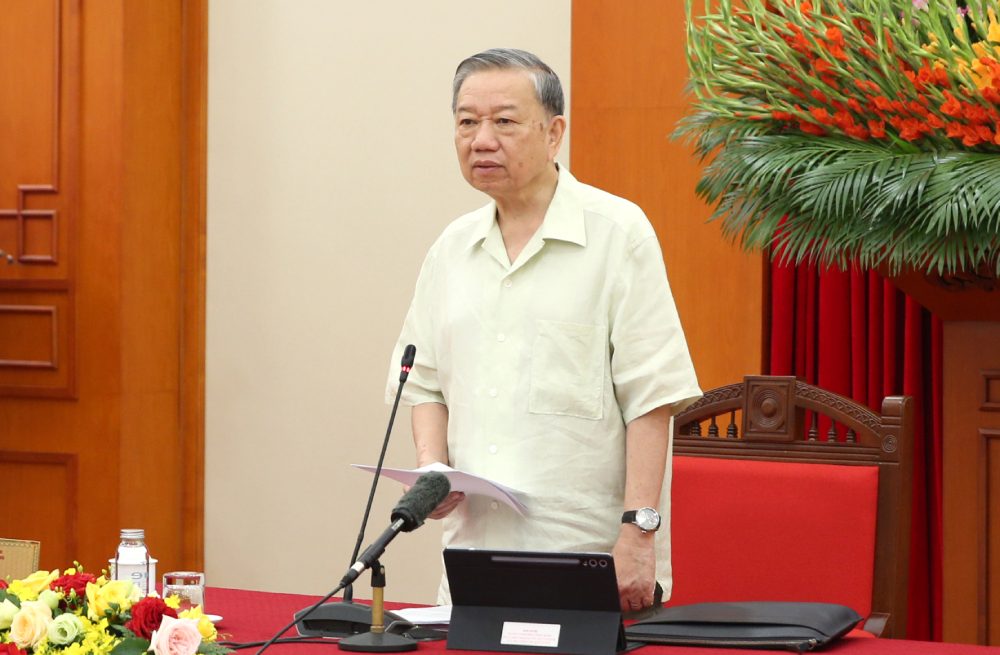
The General Secretary emphasized that the results of implementing Resolution 57 of the Politburo are very remarkable, affirming that they are on the right track.
However, there is still a lot of work to do and there are still many tasks in the plan that have not been implemented. Many bottlenecks continue to need to be resolved to make further breakthroughs.
"Seeing the world, I feel very impatient, the countries move very quickly. We must have an international vision, not just in the corner of our home ground, in our village. We must look at the development of the international community, this is a competition, an emulation. We must know where people go, what to do and what we must do" - the General Secretary stated.
The General Secretary reviewed the application of artificial intelligence (AI) in some countries around the world and said that when updating information and comparing the world's progress, it was seen that "we have a very long distance".
"See the development of the world to see where you are in this vast universe. What do I do, what contribute to this achievement and result?" - The General Secretary raised the issue.
The General Secretary pointed out that the two recent domestic tests from natural disasters and cyberspace have exposed loopholes in management, forecasting and response capacity. In which, the historic flood after storm No. 11 not only caused great damage to people and property but also exposed many shortcomings and weaknesses.
At the same time, it is necessary to question whether science and technology, innovation and digital transformation have truly become shields to protect people or are they just plans on paper, disrupted systems that cannot be warned, cannot be responded to in time when disasters come.
The General Secretary pointed out and suggested going straight to limitations, weaknesses, and avoidance to find drastic solutions to help the country overcome.
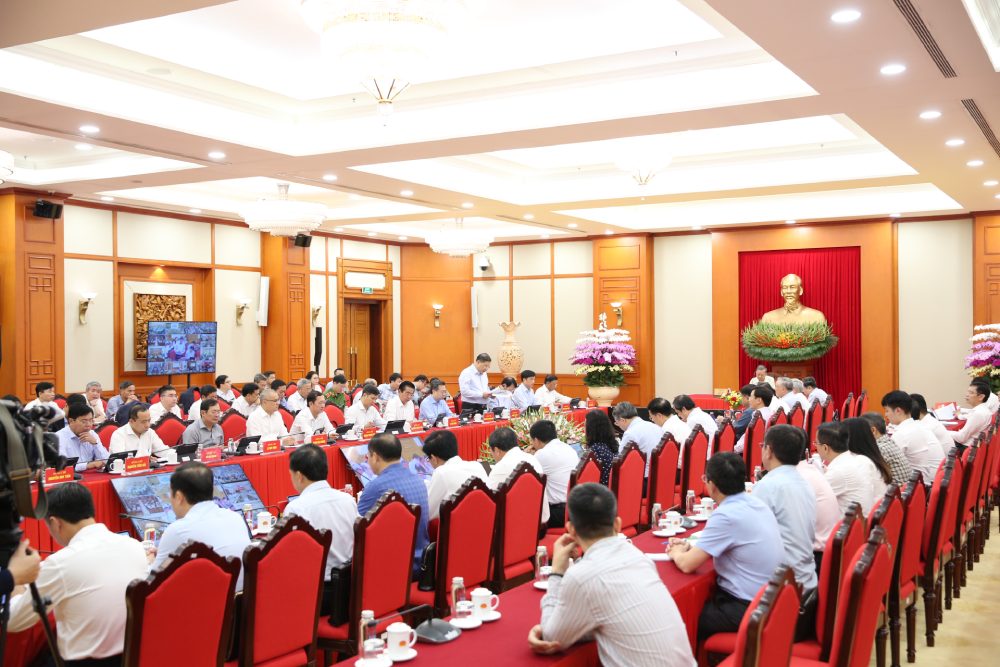
There are still bottlenecks, there is still a fear of making mistakes, a fear of responsibility
Regarding the progress of tasks, General Secretary To Lam noted that the tasks for 2025 must be resolutely implemented, not postponed. If the tasks are not completed in the fourth quarter, the tasks will not be completed in 2025, thereby slowing down the tasks of the next term.
The General Secretary emphasized that the institutions have been opened, political determination has been achieved, why is there still a situation above the hot and below the cold, there are still about 90 overdue tasks. There are still bottlenecks, there is still a fear of making mistakes and responsibility.
The General Secretary affirmed that it is necessary to calculate and have a mechanism to tighten discipline and order, and attach the responsibility of the leader to all tasks. In particular, the completion of specialized national databases and the substantial improvement of public service quality must be completely implemented.
The General Secretary reiterated that people are still on TV saying that they have spent the whole morning waiting to do public services but cannot connect, leading from a lot of hope to disappointment. "Although the above opinions are small, they should not be left like that, and such shortcomings cannot be accepted" - the General Secretary pointed out.
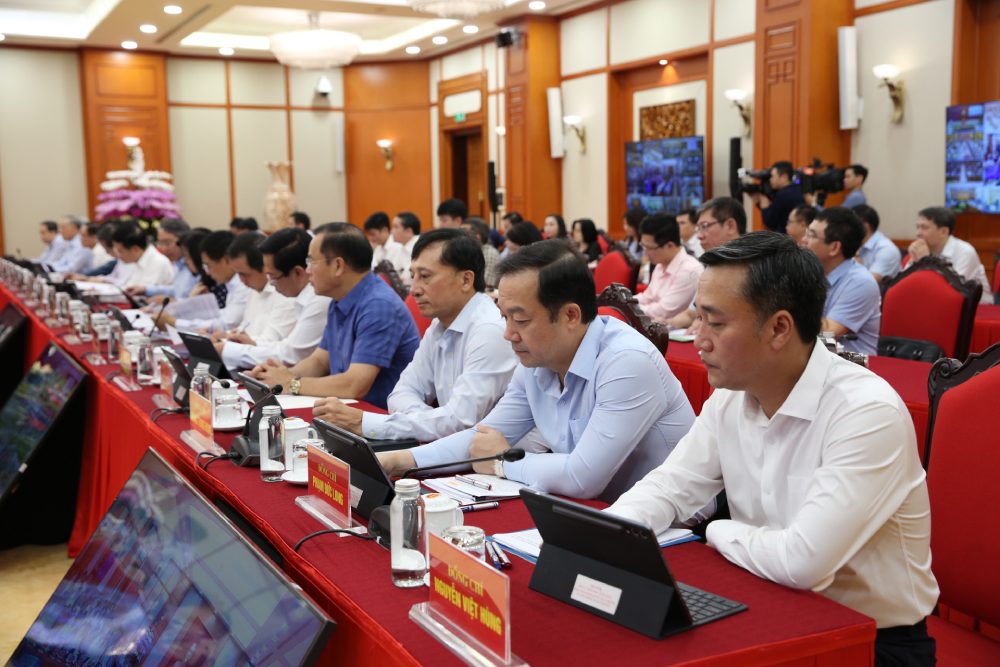
The General Secretary suggested a number of issues for the delegates to focus on discussing, such as the connection of 3 houses: state, schools, businesses; the issue of promoting talent; on energy infrastructure; on strategic technology.

